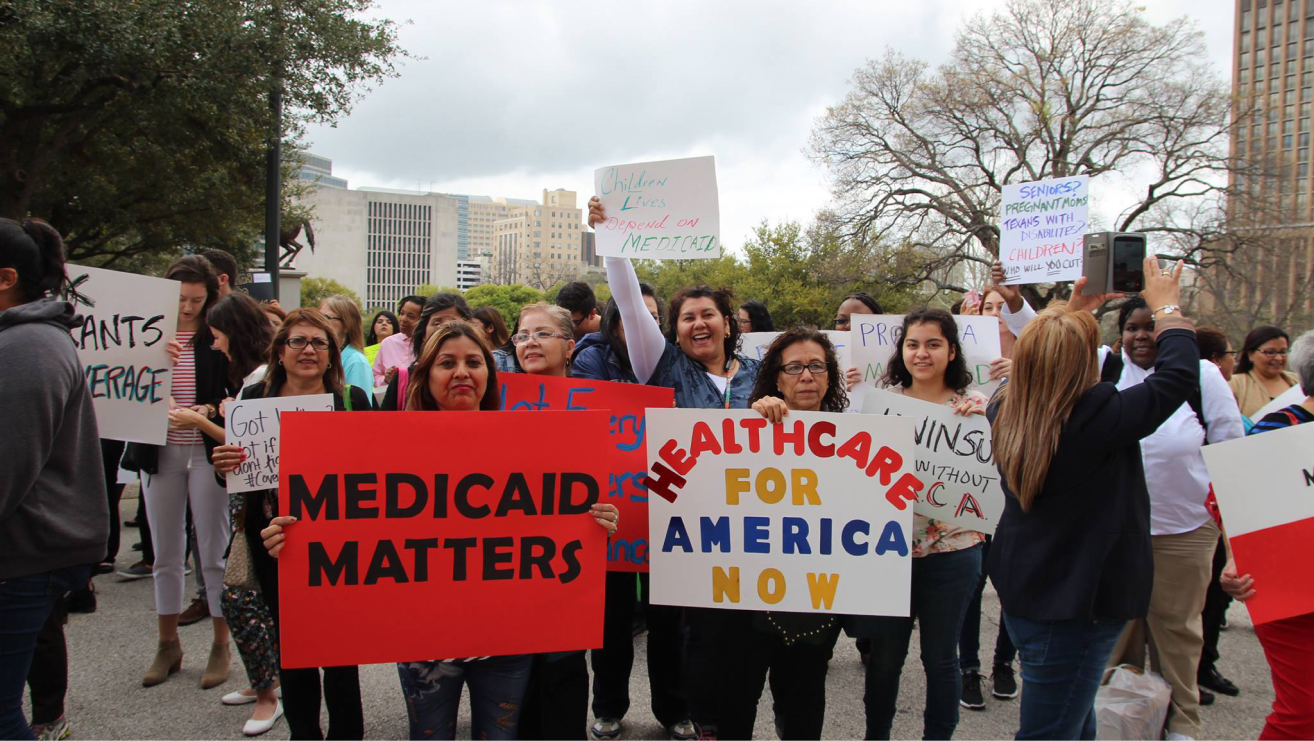Call to Action: Creating Cycles of Opportunity Through ACEs Screening
Amidst the noise of the national political landscape, it is important to remind ourselves that February is Black History Month. While this month serves to celebrate the accomplishments of black people in America, it is also a reminder of how inequality has, and continues to, plague many black communities. Health inequity constitutes one of the many systemic forces that perpetuate the marginalization of the same community we celebrate for its undeniable contributions to American society. In the words of civil rights playwright and activist James Baldwin, “Not everything that is faced can be changed, but nothing can be changed until it is faced.”
The challenge: Why must we act? Disparities persist. 2017 marks 53 years since the passage of the Civil Rights Act of 1964, key legislation that outlawed de jure discrimination based on race, color, religion, sex or national origin. And yet, half a century later, we still suffer the consequences of de facto discrimination across all axes in health such as disparate health outcomes, and/or access to affordable quality care. In fact, according to a Kaiser Family Foundation brief “disparities in quality of care are not getting smaller. Over time, the health disparities between Whites and African Americans, Hispanics, Asians, and American Indians/Alaska Natives has either remained unchanged or worsened for most of the core qualities measures of health.” The longstanding weight and trauma of racism has long-term consequences across the lifespan for people of color.
Adverse Childhood Events: A metric for trauma. One health disparity among children garnering growing concern and attention is prolonged adversity (or trauma) in the absence of positive adult caregiver support. Researchers have used Adverse Childhood Experiences (“ACEs”) to categorize the many forms of early trauma. Not surprisingly, Black and Hispanic children – even at the highest income levels – are more likely than their white peers to experience adversity. Work led by Harvard University’s Jack Shonkoff illustrates how exposure to trauma and stress negatively affects brain development before the age of three. Further, research shows that trauma can have long-term psychological and physiological health impacts that exacerbate health disparities over generations if left untreated. This is a stunning reminder of the urgency surrounding health care coverage and access for children and parents throughout the life cycle – from preconception to a child’s transition into adulthood.
Despite this substantiated research, it is not standard practice for medical providers to inquire about the trauma history of their patients. Moreover, there are not enough financial incentives put forth by insurance payers to do so. A first step is to focus on parents, assessing their exposure to stress and trauma and providing tools and resources as they develop as parents and caregivers of young children.
But what can ACEs screening tool do? There is reason to keep hope. We know that resilience – the ability to overcome hardship – can attenuate some of the impacts of significant adversity. Kids who have a supportive relationship with an adult caregiver are better able to build resilience. And while historically, African-Americans/Black people have found ways to build such resilience by employing faith, hope and community, these supports are simply not enough for many of our most vulnerable families and children who face persistent adversity.
These disparities emphasize the importance of implementing more targeted programmatic intergenerational policies and programs that focus on addressing the needs of both vulnerable parents and their children together in order to create cycles of opportunities for more families.
A validated ACEs screening tool would serve the dual purpose of employing a more strategic approach that properly identifies and provides social service resources to at-risk families in order to build supportive caregiver relationships.
Concrete pathways to action: This is a difficult political environment, but it is more imperative than ever to focus on the health and wellness of our communities. If we know that our communities shape the conditions families face, and that families shape the conditions children grow up in, then we must urgently support families in strengthening their capacity for resilience so they can build that capacity amongst our children. In that vein, the children’s health team at Community Catalyst has developed an issue brief to support a shared understanding of ACEs, trauma and stress and the multi-generation policy approaches that support healthy families.
Over the next few months the children’s health team will be conducting a review of ACE’s legislation and programs across the country. This will include investigating initiatives that are Community-, Provider- and legislative- led to inform an issue brief for consumer health advocates and provider communities. We hope the resulting issue brief will serve as a call to action with the dual purpose of reminding us all why health equity work matters, and what vehicles providers, consumers and legislators can use to advance the ACE agenda.
Nana Yaa Misa, Children’s Health Initiative Intern
